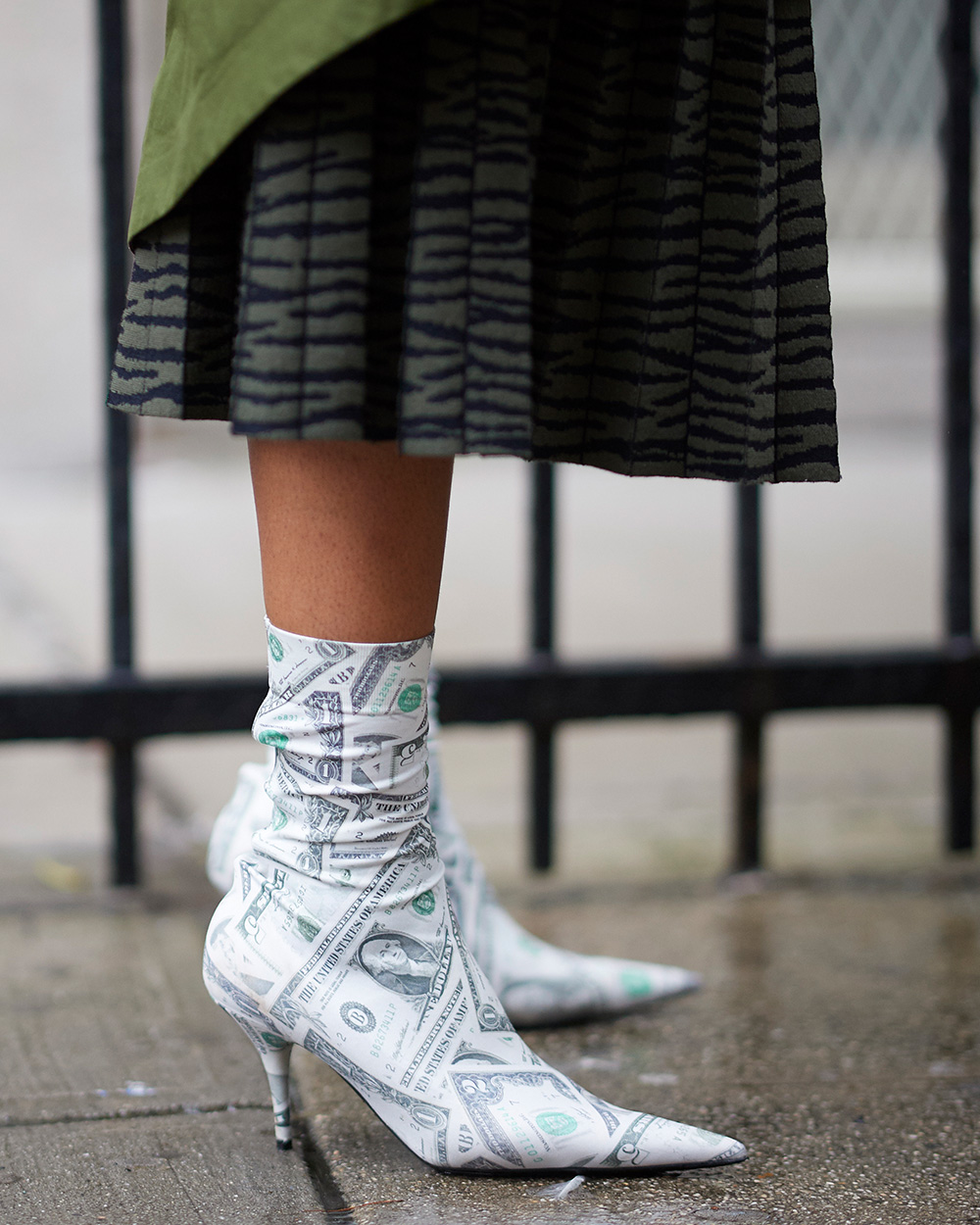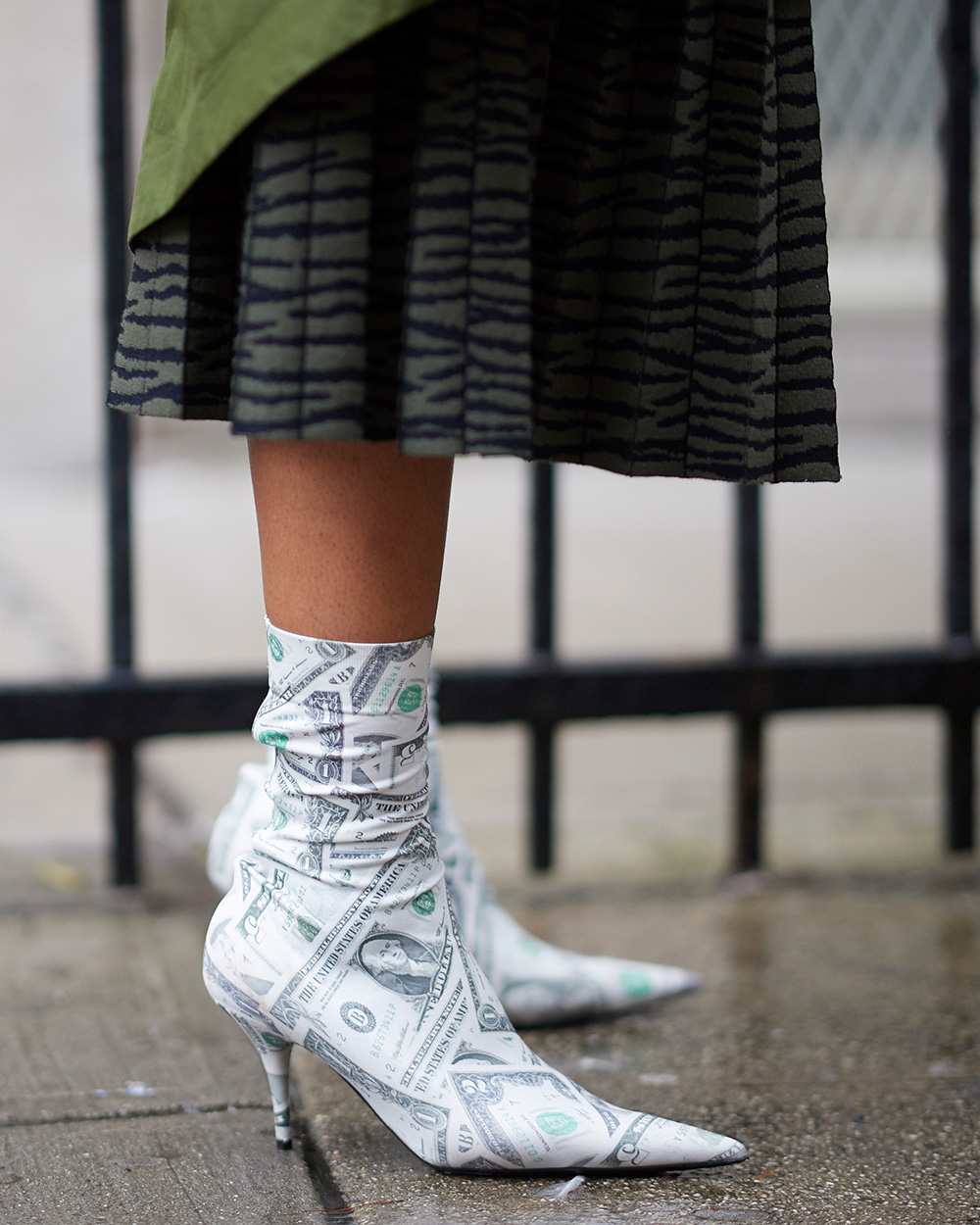Budgeting can only tell us what we can’t afford, but when has that stopped us from spending what we don’t have?
Instead of assigning some incredibly complex justification to your inability to ‘budget’, at the end of the day it comes down to one simple thing: Budgeting isn’t fun.
Sure, finding out about your spending habits and just how much you do tend to spend on things does wonders for accountability. But daily, weekly, and monthly tracking of where every dollar goes is tiresome and, well, boring AF.
When we restrict ourselves or tell ourselves ‘no’ to something – be it saving money or eliminating junk food – we’re probably almost always going to have a blowout and drop a fat sum on a clothing haul or put away a KFC Family Feast and then feel really, really bad about it later. Enter, the vicious cycle of self-remorse.
Throw in the tens of thousands of marketing messages we’re exposed to on a daily basis willing you to spend every dollar you earn to feel great, look good and #LiveInTheMoment and your ‘realistic budget for entertainment, rent, bills, travel and food’ disappears faster than a Kylie Cosmetics restock.
There’s just no getting around it. Any system designed to control your normal human impulses is bound to fail.
So, how do we save money sans budget?
According to David Bach, the American financial author of bestsellers Finish Rich and Automatic Millionaire, it comes down to paying yourself first. He’s not the first – nor will he be the last – expert in wealth creation to promote this concept with -in my opinion, the OG in being good with money – Robert T. Kiyosaki, author of Rich Dad, Poor Dad, a strong advocate also.
Think about how your cash flow typically operates. When we get paid, what do we do next? We pay the government (well, that tends to happen before we even see our payslip here in New Zealand), we pay our landlords, then we pay our phone, Netflix, gym, insurance and other bills, then we probably send some in the direction of our credit card bill, put some aside for groceries – you get the idea.
“The reason why we think we need to budget is to help us figure out how much to pay everyone else so at the end of the month – or the year -, of our working life, we will have something ‘leftover’ to pay ourselves,” says David.
What does Pay Yourself First mean?
It means, exactly what it says. “Wait, what? But I have bills to pay”… See, there we go again, wanting to overcomplicate it.
David advises we ought to do exactly what the government is doing to ensure that they always have cash rolling in by setting up a system that guarantees you’re going to get paid first – automatically!
When you think about how many hours you work on any given week, how much you earned per hour, and then work backwards to figure out ultimately how many hours you worked for your retirement, first home deposit, or whatever your financial goal is right now, it’s probably not a lot, right?
Long story short, David suggests you should be saving one hour’s work per day for YOU.
“Unfortunately, most people don’t even come close to saving that much,” says David.
“…The average American saves well below 5 percent of what he or she earns. In other words, most of us barely work 22 minutes a day for ourselves.”
You can’t spend what you don’t have
While it’s hard to quantify the cost of not putting any money aside right now, when you crunch the numbers, that little extra cash that you no longer even see in your everyday account could be swelling to hefty sum.
For example: Let’s say you had a gross salary of $50,000. If you started saving 10 percent of your income and had it automatically transferred to a savings account that you never saw and never touched, and started looking at your ‘new’ payslip amount (less the 10 percent) to pay your bills and #LiveALittle, you’d adjust to your new normal AND never need to worry about putting what’s left over aside that you’ll LBH, probably dip into anyway. Before you know it, that 10 percent going in regularly would amount to $5,000 before the year is up – and that’s before any annual interest return is added on to it.
I don’t know about you, but coming up with a cheeky $5,000 willy-nilly by the end of the year otherwise is pretty unlikely. But when you pay yourself first, it happens automatically. Spoiler alert, that’s the whole point of this article.
You can’t spend what you don’t have.
But what if I can’t afford 10 percent?
You don’t have to start with 10 percent. You can start with 5 percent and slowly build it. Plus, the beauty of this saving rule is that it doesn’t matter how much you earn, it’s all relative to what you earn.
At the start of 2018, I wrote about how saving money doesn’t have to mean earning more. In fact, earning more can often lead to seeing less of what you earn (and paying more tax). Which is why, at the end of the day, it comes down to living within your means and being more strategic and savvy with where your money goes. Like the 50:20:30 rule which absolutely up hauled my spending habits and gave me a realistic indication on how much I should be spending on things like rent and entertainment. (Like, no wonder I couldn’t save a damn thing).
People who earn more, spend more and probably owe more. Which may look all good and dandy from face value but could mask the fact that they may be retiring one day with absolutely zero money in the bank or working well into their seventies. Not ideal.
We’re intelligent, capable and talented women. Of course, we could try and win wealth, marry into wealth, inherit wealth or budget for it. But wouldn’t you rather take control and bank on a sure thing?






